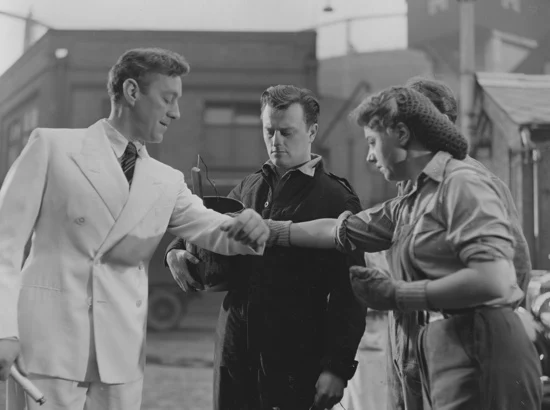A blog formerly known as Bookishness / By Charles Matthews
"Dazzled by so many and such marvelous inventions, the people of Macondo ... became indignant over the living images that the prosperous merchant Bruno Crespi projected in the theater with the lion-head ticket windows, for a character who had died and was buried in one film and for whose misfortune tears had been shed would reappear alive and transformed into an Arab in the next one. The audience, who had paid two cents apiece to share the difficulties of the actors, would not tolerate that outlandish fraud and they broke up the seats. The mayor, at the urging of Bruno Crespi, explained in a proclamation that the cinema was a machine of illusions that did not merit the emotional outbursts of the audience. With that discouraging explanation many ... decided not to return to the movies, considering that they already had too many troubles of their own to weep over the acted-out misfortunes of imaginary beings."--Gabriel García Márquez, One Hundred Years of Solitude
Search This Blog
Showing posts with label John Dighton. Show all posts
Showing posts with label John Dighton. Show all posts
Friday, November 22, 2019
The Man in the White Suit (Alexander Mackendrick, 1951)
The Man in the White Suit (Alexander Mackendrick, 1951)
Cast: Alec Guinness, Joan Greenwood, Cecil Parker, Michael Gough, Ernest Thesiger, Howard Marion-Crawford, Henry Morrison, Vida Hope. Screenplay: Roger MacDougall, John Dighton, Alexander Mackendrick. Cinematography: Douglas Slocombe. Art direction: Jim Morahan. Film editing: Bernard Gribble.
Music: Benjamin Frankel.
When I first saw The Man in the White Suit many years ago, I thought it was a satire on the short-sightedness of those who resist scientific and technological progress. But now, after having worked in an industry threatened with obsolescence by technology, I have much greater sympathy for the film's ostensible villains, capital and labor, who try to suppress the innovation discovered by Alec Guinness's Sidney Stratton. He develops a "miracle fabric" that repels dirt and is seemingly indestructible. At first, the idea is welcomed by textile manufacturers who hope to obliterate the competition with the product. But it doesn't take long for the manufacturers to realize that an indestructible fabric would eventually put them out of business. At the same time, the labor unions realize that it would also put them out of work. It's not hard to see the parallels to our own experiences after the revolution brought about by computer technology, but in 1951 that was nothing more than a glimmer in the eyes of the fathers of Bill Gates and Steve Jobs. So be careful about what's funny today. It may be your nightmare tomorrow.
Tuesday, June 11, 2019
The Life and Adventures of Nicholas Nickleby (Alberto Cavalcanti, 1947)
 |
| Cedric Hardwicke and Sally Ann Howes in The Life and Adventures of Nicholas Nickleby |
Forgettable and rather plodding version of the Dickens novel, kept alive only by some good actors doing their thing well.
Saturday, February 24, 2018
Kind Hearts and Coronets (Robert Hamer, 1949)
 |
| Dennis Price and Joan Greenwood in Kind Hearts and Coronets |
Edith D'Ascoyne: Valerie Hobson
Sibella: Joan Greenwood
Ethelred, Lord Ascoyne/Rev. Lord Henry/ Gen. Lord Rufus/Admiral Lord Horatio/Young Ascoyne/Young Henry/Lady Agatha D'Ascoyne: Alec Guinness
Louis's Mother: Audrey Fildes
The Hangman: Miles Malleson
The Prison Governor: Clive Morton
Lionel: John Penrose
Lord High Steward: Hugh Griffith
Director: Robert Hamer
Screenplay: Robert Hamer, John Dighton
Based on a novel by Roy Horniman
Cinematography: Douglas Slocombe
Art direction: William Kellner
Film editing: Peter Tanner
Costume design: Anthony Mendleson
Music: Ernest Irving
Kind Hearts and Coronets is best known for Alec Guinness's tour de force as the entire D'Ascoyne family, but that's hardly the greatest of pleasures the film affords. Dennis Price's performance as the suavely lethal Louis is as much a demonstration of how to act sophisticated comedy as one could wish, and who can resist Joan Greenwood as Sibella, especially in hats that seem to contain an entire florist's shop? It evokes her definitive Gwendolen Fairfax in Anthony Asquith's 1952 filming of The Importance of Being Earnest. In fact, Oscar Wilde's play is the essential background reference for Robert Hamer's screenplay -- it apparently also influenced the novel on which the film is based -- and you hear Wilde's voice in such lines as Mazzini's "It is so difficult to make a neat job of killing people with whom one is not on friendly terms." Hamer's staging also provides the necessary distancing from Mazzini's murders, as in the scene in which he offs Young Henry D'Ascoyne: While Mazzini is taking tea with Edith in the garden we hear a whump that neither character acknowledges as Henry's darkroom explodes with him in it. Then smoke begins to arise beyond the garden wall, and Mazzini comments that someone must be burning leaves. Not this time of year, Edith replies, and Mazzini rushes off to "investigate" what he knows has happened. Kind Hearts and Coronets seems to me the best of all the classic British comedies of the late 1940s and the 1950s.
Subscribe to:
Comments (Atom)












